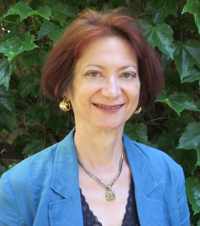On New Year’s Day, Pints with Aquinas, a podcast that seeks to explain the thought of Thomas Aquinas to non-specialists, featured an episode on happiness; it is a conversation between me and the podcast’s hilariously self-deprecating and generous host, Matt Fradd. The episode is titled “How to be happy” but its not about that (no one can tell you how to be happy–virtue is not a technique, and philosophy isn’t self-help). I’m posting a link to it here; I hope you enjoy our conversation!
Side note:
Whenever I do a podcast, I always think about what I wish I had said as opposed to what I actually said. In this episode, for instance, Matt asked me why I don’t like Jordan Peterson’s writings. I wish to say a little bit more in response here than I offered Matt during our conversation. I didn’t want to derail our episode, but at the same time, I want to be on record about why male interest in Jordan Peterson bothers me.
First and foremost, I don’t follow Jordan Peterson and I have not read his book. I do not consider this a failure on my part. I am a finite being with limited resources, and I have to be prudent about what I decide to read, especially since I read very carefully and in a time consuming way. Jordan Peterson is famous not because he has brilliant ideas–from what I can gather, his book promotes many pedestrian, time worn platitudes about us, in addition to some fairly shallow readings of great books–but because he is an admitted, radicalized culture warrior. I am allergic to our toxic culture wars, as they drag down discourse rather than elevate it. Culture warriors have practical (typically political) ends and reality gets dragged around to meet these ends on both sides; I have no time for that. I don’t need to engage yet another voice opposed to finding common ground together. I want to search for common ground, and if I didn’t believe that was possible I would sooner give up on discourse rather than further destroy it.
But I went further and said I don’t like his work, and that is what needs to be explained. Jordan Peterson says some unserious (indeed, laughable) but also dangerous things about women, and frankly, whatever sensible, true things he says about our culture is outweighed by his toxic attitudes about women. For instance, that the feminine is deeply associated with chaos whereas order and reason is masculine, and to treat it any other way would be “transhuman” or denying reality. For instance:
“You know you can say, ‘Well isn’t it unfortunate that chaos is represented by the feminine’ — well, it might be unfortunate, but it doesn’t matter because that is how it’s represented. It’s been represented like that forever. And there are reasons for it. You can’t change it. It’s not possible. This is underneath everything. If you change those basic categories, people wouldn’t be human anymore. They’d be something else. They’d be transhuman or something. We wouldn’t be able to talk to these new creatures.”
Or, if that wasn’t weird enough, here’s something JP tweeted in 2016:
“Women, if you usurp men they will rebel and fail you and you will have to either jail or enslave them.”
Um, OK.
And please note that his “Twelve Rules for Life” is an antidote to chaos–an antidote to the feminine. I think I know enough already about what he is on about, and I’m not interested in what he’s selling. If you are interested–if this vision of women appeals to you and rings true to your experience–I’m concerned about you.
Having said this, I certainly don’t want to silence Jordan Peterson, even though I think this vision of the feminine is dangerously false. I will raise daughters to be proud of their feminine genius insofar as they have cultivated it. But when men ask me point blank, as Matt did, why I don’t like him, as if he’s obviously great, I hope the answer is now clear: I don’t have time for misogyny masquerading as eternal verities. Life is too short, and I’d rather be reading wise women like Elizabeth Anscombe, Philippa Foot, Donna Tartt, Edith Stein, Hannah Arendt, Simone Weil, Marilynne Robinson, Eleonore Stump, or any of the incredibly amazing contemporary women philosophers and theologians I am so blessed to work with and learn from.

 Sacred and Profane Love is a podcast in which philosophers, theologians, and literary critics discuss some of their favorite works of literature, and how these works have shaped their own ideas about love, happiness, and meaning in human life. Host Jennifer A. Frey is A Assistant Professor of Philosophy at the University of South Carolina and co-Principal Investigator at Virtue, Happiness, and the Meaning of Life.
Sacred and Profane Love is a podcast in which philosophers, theologians, and literary critics discuss some of their favorite works of literature, and how these works have shaped their own ideas about love, happiness, and meaning in human life. Host Jennifer A. Frey is A Assistant Professor of Philosophy at the University of South Carolina and co-Principal Investigator at Virtue, Happiness, and the Meaning of Life.
 Jean Porter is the John A. O’Brien Professor of Theology at the University of Notre Dame, and a scholar with the project Virtue, Happiness, & the Meaning of Life.
Jean Porter is the John A. O’Brien Professor of Theology at the University of Notre Dame, and a scholar with the project Virtue, Happiness, & the Meaning of Life.